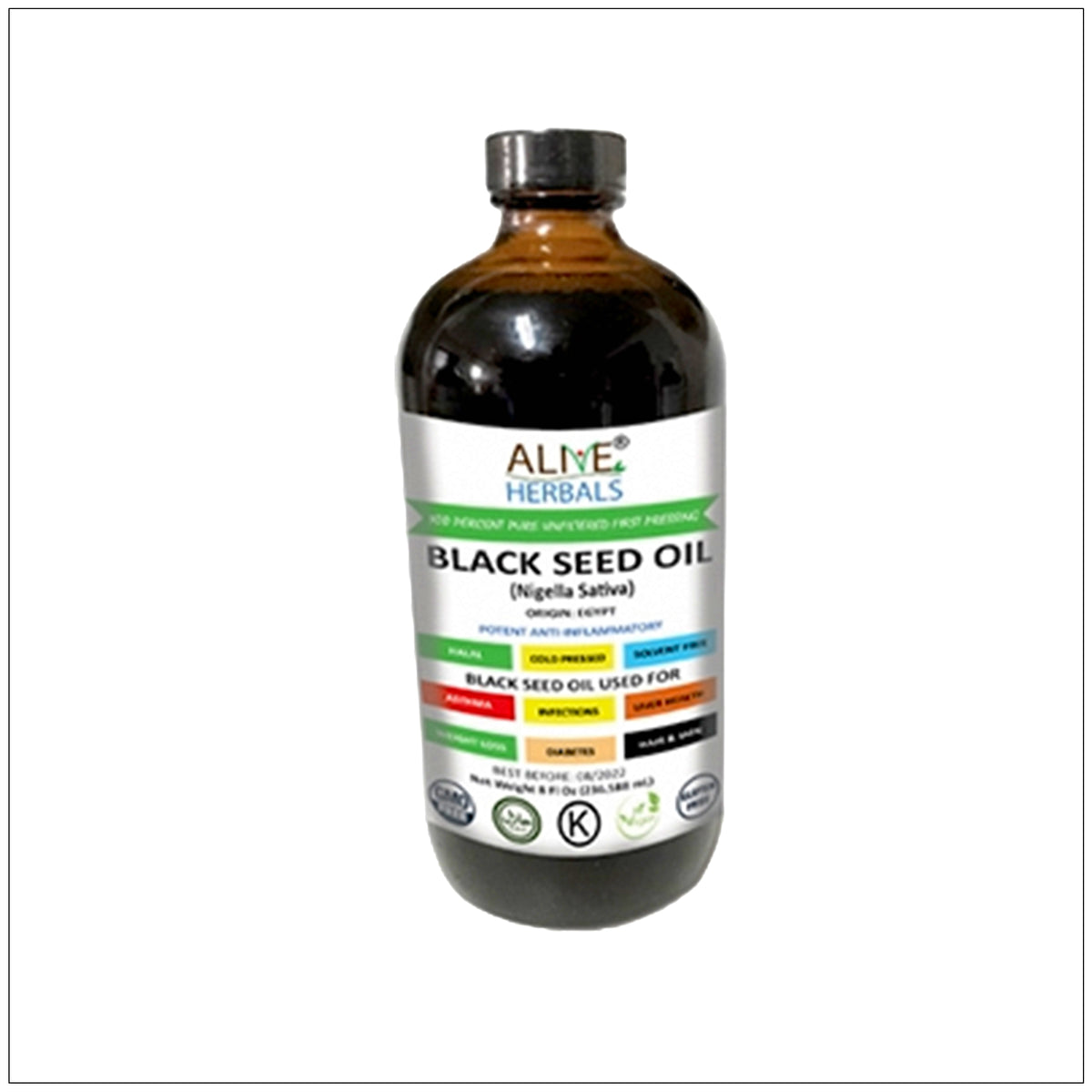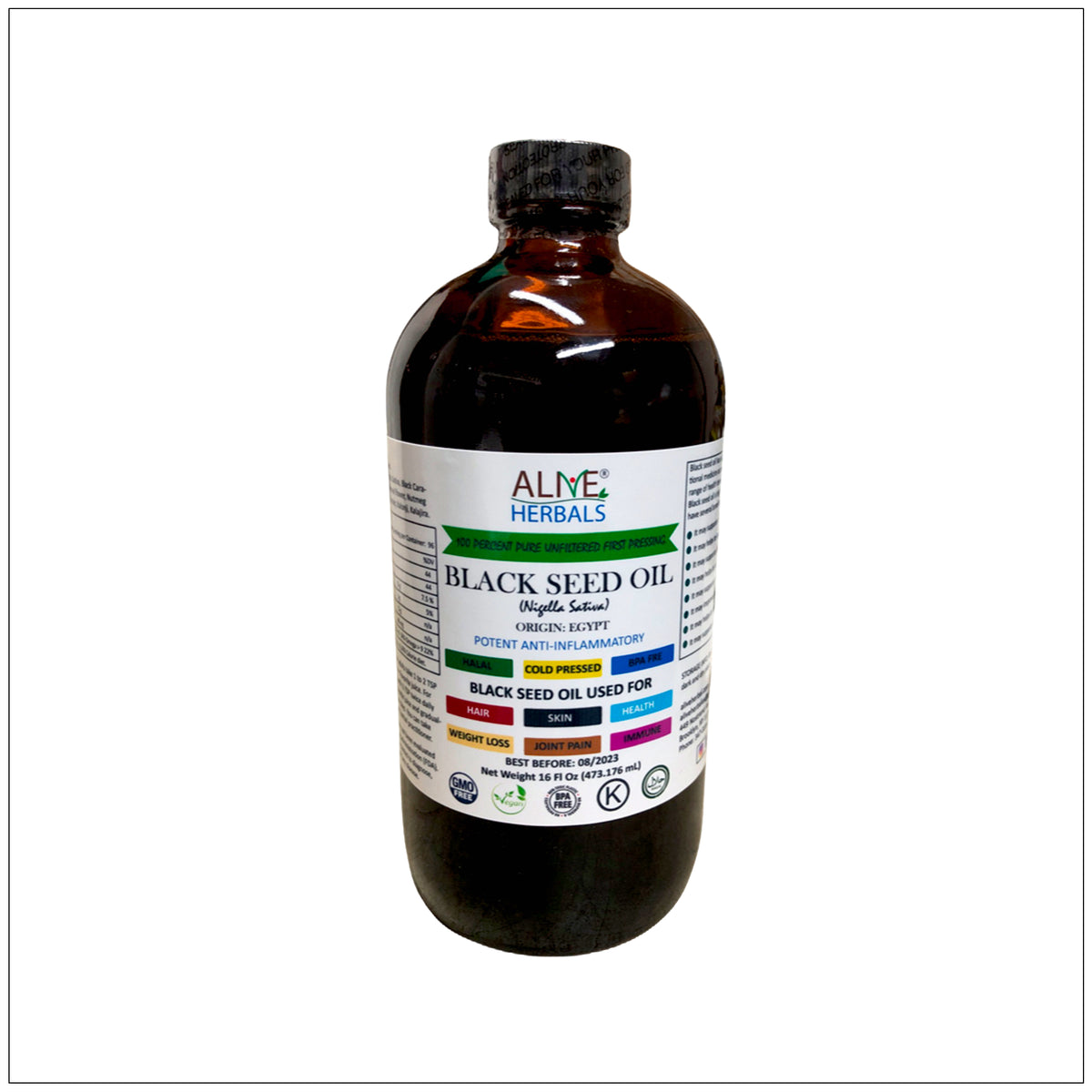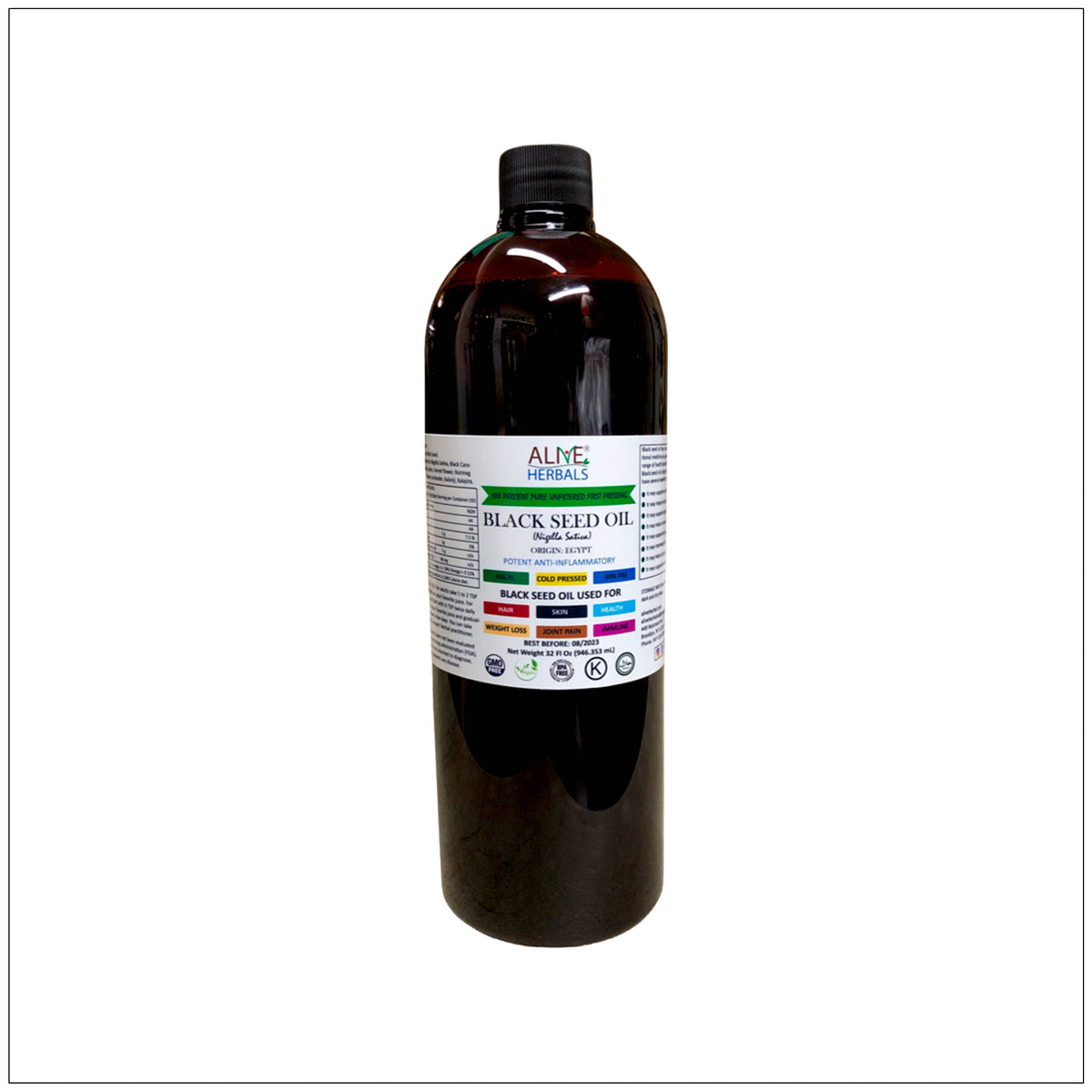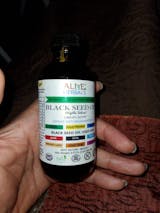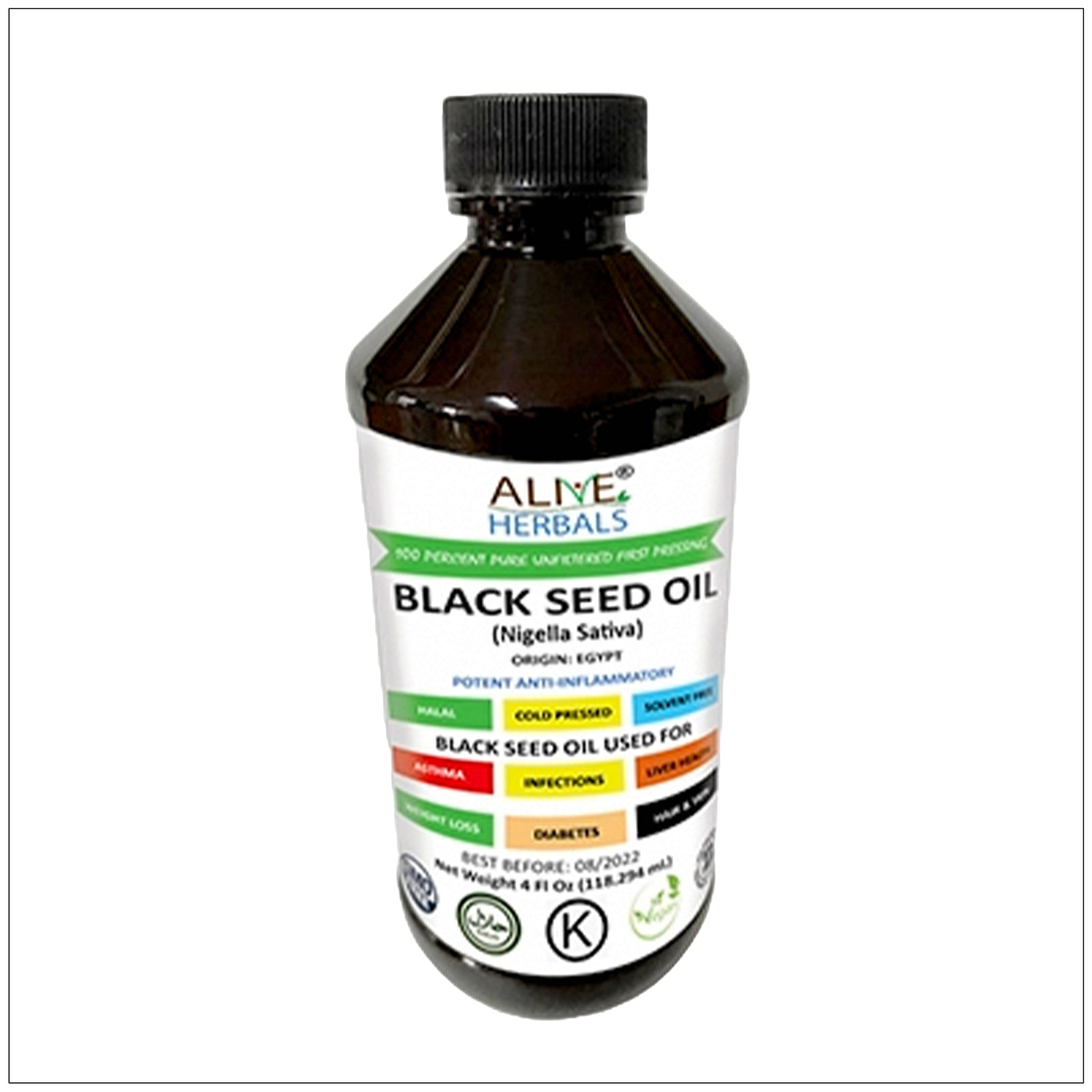
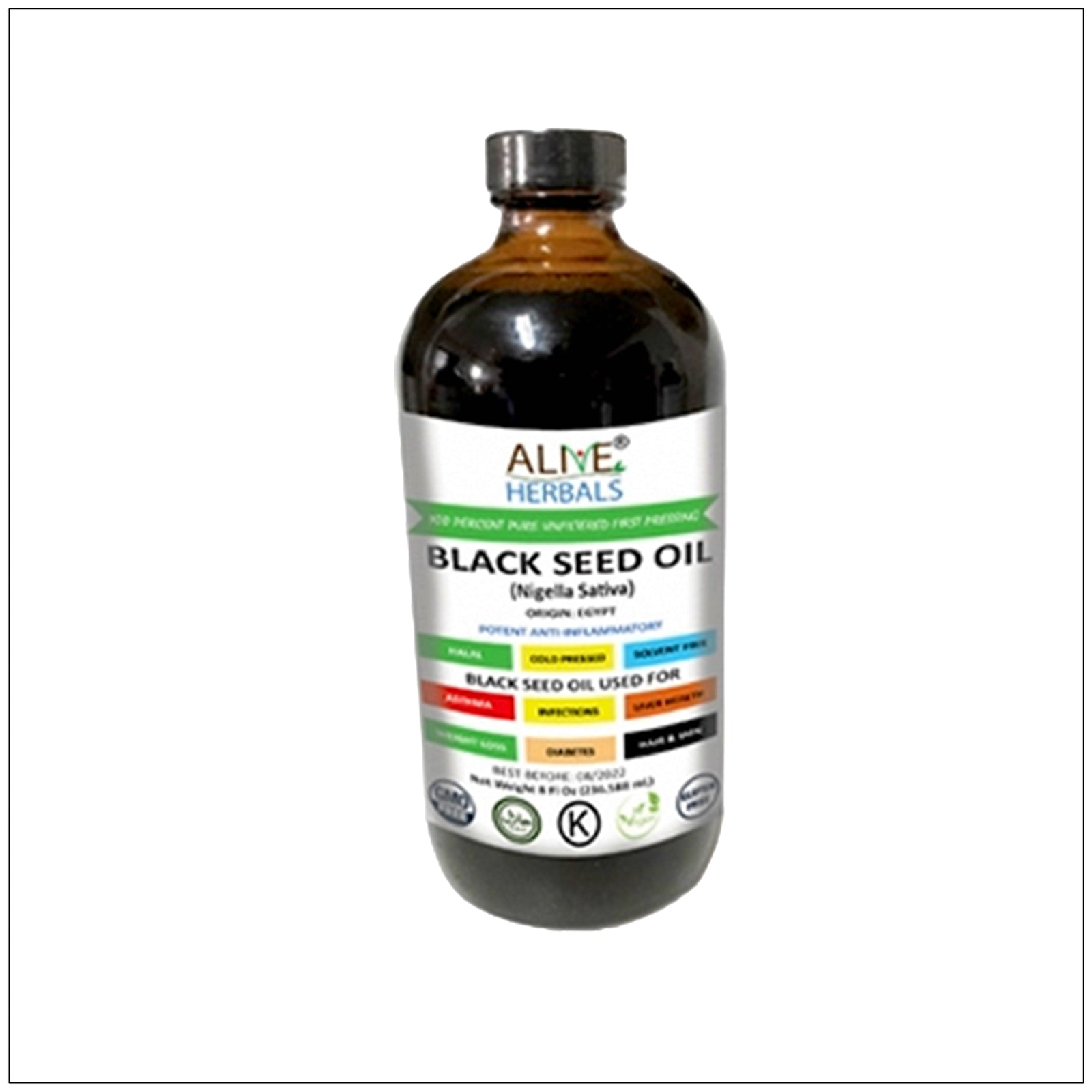

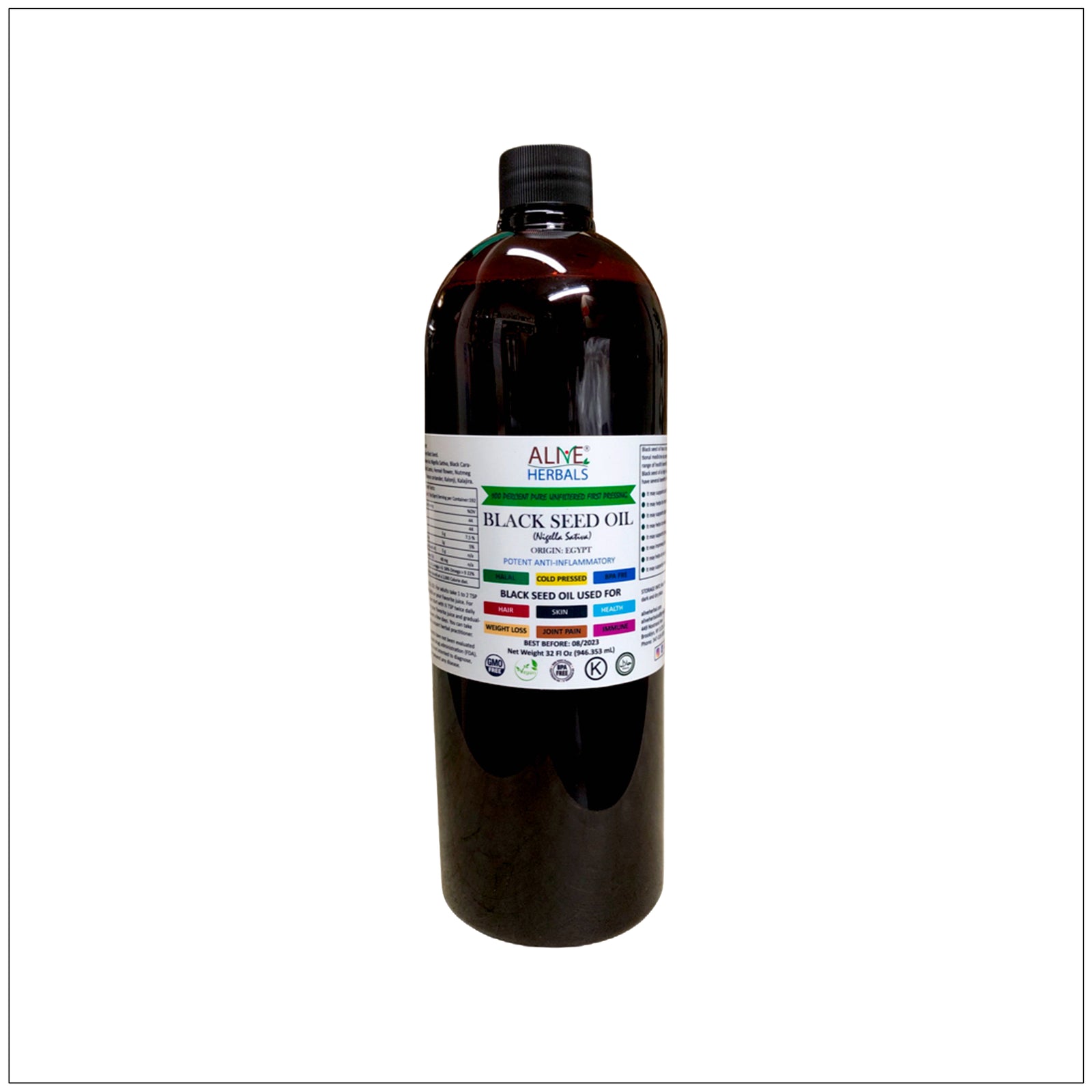
Black Seed Oil
🚚 Fast and Free Shipping !!!
What is black seed oil?
Black seed oil is a botanical constituent obtained from the Nigella sativa plant. Black seed oil, a natural remedy renowned for its potent medicinal properties, is utilized to treat a variety of ailments, including migraines. The Nigella sativa plant, native to southwest Asia, the Middle East, and southern Europe, is often known by its common name, black seed. Other names for it include Roman coriander, nigella, black cumin, fennel flower, and black caraway. These seeds are used to obtain black seed oil. You may get the oil's capsules online and in health shops. In the areas where N. sativa is produced, the oil and the seeds—which may be eaten raw or very gently toasted—have long been utilized as therapeutic plants. It even makes an appearance in the languages of the Judeo-Christian Holy Bible and Muhammad.
How do I use black seed oil?
It may be consumed as a daily supplement in the form of a capsule containing black seed oil, or it may be utilized as a condiment or salad dressing. Furthermore, it can be utilized topically for hair and skin through direct application to the affected area or by combining it with other oils or hygiene products.
Black seed oil benefits:
It may be consumed as a daily supplement in the form of a capsule containing black seed oil, or it may be utilized as a condiment or salad dressing. Furthermore, it can be utilized topically for hair and skin through direct application to the affected area or by combining it with other oils or hygiene products.
◉ May reduce acne: According to some studies, black seed oil may be beneficial for treating skin conditions like acne. This may be the result of black seed oil's antimicrobial and anti-inflammatory properties. A topical gel containing black seed extract applied twice daily for sixty days reduced the severity of acne by 78%, according to one study. In comparison to the control group, the researchers noticed a significant decrease in the number of acne lesions.
◉ Wound healing: Speed asserts that the wound-healing properties of thymoquinone are attributed to its antioxidant, anti-inflammatory, and antibacterial attributes. She adds that black seed oil can also stimulate collagen production, thereby accelerating the regeneration of the epidermis. However, further investigation is required due to the prevalent reliance on animal studies for data on the wound-healing properties of black seed oil.
◉ Diabetes: In patients with diabetes, black seed oil appears to have hypoglycemic properties, suggesting that it may be effective in reducing blood sugar, according to a study published in the Indian Journal of Physiology and Pharmacology [6]. "Both fasting blood sugar levels and A1c levels (estimated glucose average) have been observed to decrease significantly with black seed oil," says Casey Kelley, M.D., founder and medical director of Case Integrative Health in Chicago and an authority on infectious diseases.
◉ Weight Loss: Black seed oil suppresses appetite, which, according to Dr. Ilyas, may facilitate weight loss. Further research is required to determine whether the addition of black seed oil to a low-calorie diet improved body composition, including body mass index, and suppressed appetites in obese women who participated in a randomized, double-blind trial.
Where can I buy black seed oil?
Buy black seed oil from the health food store in the USA, Alive Herbals.
Black Seed Oil information (at a glance):
| Product Name | Black Seed Oil. |
| Scientific Name | Nigella sativa. |
| Country of Origin | It is native to originated in southern Asia, southern Europe and North America. |
| Product Style | Oil. |
| Taste & Aroma | The cold-pressed natural oil tastes and smells like turpentine!. |
| Shelf Life & Storage | Shelf Life is about 06 - 24 months. Store it in an airtight container in a cool, dry place and prevent sunlight exposure. |
| Precautions | We requested you, Before consuming spices, herbs, teas or any kind of natural products you consult an expert qualified healthcare practitioner or herbalist. |
| Note | This product information has not been appraised by the Food and Drug Administration (FDA). For educational purposes only. |








